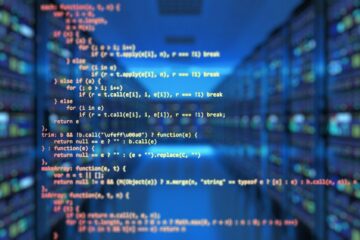![]()
INTRODUCTION
Over the last 2 decades, the issue of privacy disregard surveillance, in peculiar with the collection, processing, and sharing of personal data of individuals has become increasingly prominent in India. Human Rights Organizations are currently exploring how to ensure online privacy without violation of the Right to privacy.

SURVEILLANCE AND PRIVACY
Before considering the emerging conflict of right to privacy and surveillance; it is extensive for us to have a look at what is privacy and surveillance. Even if there is no legal definition of the right of privacy. As by the words of MERRIAM WEBSTER; “Right to privacy is any right of a person to be free from intrusion on privacy concerning matters”. The right to privacy is an element of various legal traditions to restrain governmental and private actions. Mostly that threaten the privacy of individuals. The growing right of surveillance is often justified in the name of national security.
SURVEILLANCE AND PRIVACY A GLOBAL PERSPECTIVE
Among the rights in the international category, privacy upholds a deep root in history. There occur numerous references of the right to privacy in the bible. In many countries, the concept of privacy focuses on data protection in terms of the management of personal information. Many countries find the lack of privacy will reduce the scope of self- making. Thus, it makes it obligatory on the part of countries to come up with a framework of legal restriction on the right to surveillance.
DATA PRIVACY LAW IN US
1)No state shall take steps or enforce any law which shall abridge the privacy or “Zone of privacy ” immunities of the US.
2)In ROE V. WADE,1972 the most controversial case firmly established the right to privacy as fundamental.
3)’The financial Monetization Act,1999′ requires a financial institution to provide customers with a privacy policy that explains what kind of information od being collect.
4)Social media platforms also come with a context of providing privacy settings.
5) The Children’s Online Privacy Protection Act (COPRA) was also enact to relinquish the parent’s right of choosing what information should be collect by the websites about their children. Any data to be collect can only be done with his/her consent.
DATA PRIVACY LAW IN EUROPEAN UNION’S
In Europe, none of the personal data of their citizens should be collect or gather until met with an immutable situation. Here the subject of the data holds the absolute right of her data.
RIGHT TO PRIVACY AND SURVEILLANCE IN INDIA
The ministry of human affairs under section 69(1) of the Information Technology Act,2000 pass an order empowering 10 central authorities to ‘intercept, monitor and decrypt any information generate, transmit, receive or store in any computer resources’. The main excuse claime by the ministry of home affairs is Internal security. Rule 4 of the IT Act 2009 gives the authorities the power to do whatever they want. But this lies as a great fear of threat in a Democratic country. The expansion of surveillance schemes by the Indian government leads to a violation of the right to privacy. Being a democratic country the violation of the right to privacy is considered as the core principle of the Indian Judiciary.
INDIAN LEGAL STANCE
In December 2019, ‘The Personal Data Protection Bill,2019’ was introduced in parliament by Modi’s government. This was the 1st legal stand for data protection and privacy in India. Even if the Bill doesn’t address privacy-related issues in our economy properly, it recommends a sufficient preventive framework for the intervention of government in privacy data. The studies show that India fails in privacy safeguards. This can be demonstrated in Puttasamy and Aadhar judgments recently passed by our Indian Judiciary.
Instead of ‘statutorily’ reforming the pre-puttasamy judgment the government engages power for the authorities to operate as per their will and wish. In both Puttasamy and radar judgments, the supreme court spotlights the role of government interception and people’s connection with technology. Further the technological Advancements today make it easier for us to precisely the character and behavior of the people by their activity on the internet. The Internet is a community of common interest. It is a worldwide platform for sharing information.
“NO COUNTRY IS IMMUNE TO SUCH GLOBAL CHALLENGES AS CYBERCRIME, HACKING AND INVASION OF PRIVACY”.
CONCLUSION
Even with the adoption of legal protection violation of privacy is still under concern. Privacy is considered to be an unhindered Human Right. The surveillance of a general public without their knowledge of consent violates their Human rights. To deny people their Human rights is to challenge their humanity.



0 Comments